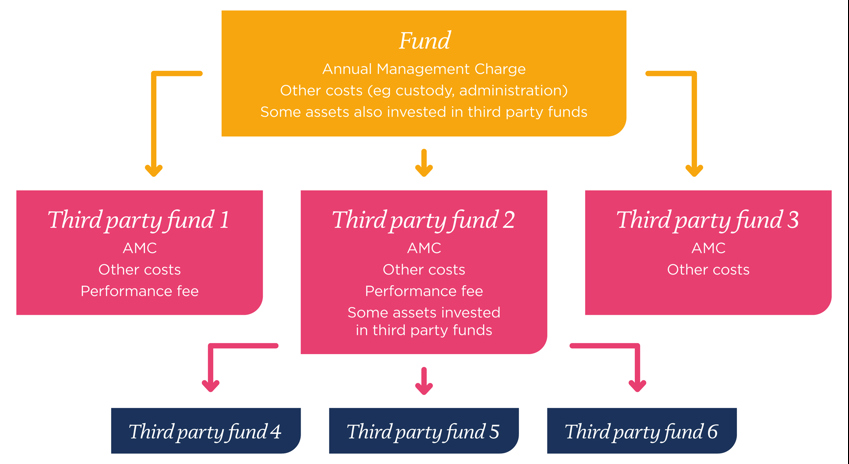A quick win
to make your charity’s assets go further
Our viewpoint
20 May 2020
Why is it important to review your fees?
High investment fees and costs weigh on investment returns that your assets generate. Hence less money available for you to spend on achieving your charitable goals. For instance on a portfolio of £25m, additional fees of 0.1% pa will reduce the amount available to spend by £25,000 – that’s a lot of charitable fundraising, every year!
What costs and fees are you actually paying?
In my experience, it can be surprisingly difficult for charities to get a full picture of how much their investment management fees are. Unless you ask the right questions – and I’ve listed some simple questions to help you at the end of this blog – you only get part of the story. For example, when charities ask their investment manager what fees they are paying, they are usually told the headline Annual Management Charge (AMC) levied by the investment manager.
However, some funds have performance fees. There are also “other costs” payable out of the invested assets. These are the costs associated with custody, administration and other running costs. These other costs can vary widely, depending on the asset class and manager.
To complicate matters further, it may be that the fund you invest in, invests in other “third party” funds, all with their own AMC and additional costs. In extremis these third party funds might in turn invest in other third party funds. You can see that we very quickly disappear down a rabbit hole of fees, that even the manager themselves can struggle to put an accurate figure on.

I haven’t even touched on other potential costs, such as transaction costs, or depending on how you access funds, entry fees, VAT or commission, but all of these items add cost and reduce overall return.
Asking the right questions
If you haven’t already carried out a comprehensive review of the total fees paid to your investment managers, one quick and easy action is to send an email to each of your managers, asking them to provide clarity on fees. Investment managers are required to report a range of details on their fees, so should be able to answer the following suggested questions easily:
- What is the AMC for the fund(s) in which we invest?
- What are the additional charges for the fund(s) in which we invest (ie the cost of administration, custody, etc). Please include all additional charges which make up the Ongoing Charges Figure.
- Do you invest in third party funds and if so, what is the Ongoing Charges Figure (AMC plus additional charges) for each of these third party funds?
- Do any performance fees apply and, if so, what are the hurdle rates?
- Do you charge any entry / exit costs and, if so, what are the terms?
What next?
Once you know how much you are paying, make sure you are getting value for money from your managers. An easy check is to compare your fees to those in our fee survey. Average fee rates have been declining in recent years, particularly, pricing for “active” funds which have been the victim of the rising popularity of index funds and other low-cost options. Challenge your investment managers if their fees are not competitive for the size of mandate. Information is power!
Also, consider the implementation of your investment strategy. Active management is more expensive than passive management so have your active managers produced returns that justify their active fees? Do you believe future returns will justify fees? Is a passive approach possible and would it provide better value for money?
Cut down on any “fund of fund” structures, whereby your investment manager is allocating assets to third party managers – this will result in the layering of fees. In addition to this, it makes it difficult to understand exactly what you are invested in, and what the key drivers of performance have been.
The fickle nature of investment markets means that you can’t always rely on achieving the investment returns you hoped for. You can however always rely on your investment managers to take their fees! By negotiating better fee rates, you can ensure concrete £ savings for your charity.


